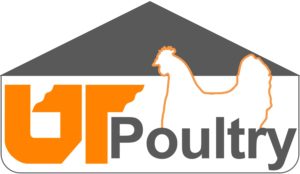March 2, 2023
TO: Tennessee Poultry Producers Raising Birds with Outside Access
FROM: Dr. Samantha Beaty, State Veterinarian
SUBJECT: Notification and Biosecurity Recommendations Regarding Highly Pathogenic Avian Influenza
Since the initial detection of HPAI at the beginning of 2022, the Southeast region of the United States has continued to be impacted by disease in poultry flocks, both commercial and backyard premises.
This virus is still being carried by wildlife in the region and based on testing in South and Central America over the winter will be carried back north by migratory birds through the end of spring. Flocks that may contact wild birds or their droppings are at a increased risk.
Healthy flocks in Tennessee are not quarantined. However,to mitigate disease risk, we strongly recommend the following steps to be taken for the protection of flocks with outside access:
- Keep birds indoors to prevent poultry flocks from coming into contact with wild or migratory birds. Restrict poultry access to any source of water that may have been contaminated by wild birds.
- Implement strict biosecurity on the premises. Alert all farm personnel of the increased risk of Highly Pathogenic Avian Influenza. Especially, focus biosecurity methods on preventing any exposure to wild waterfowl or their droppings.
- Monitor all flocks for increased mortality or clinical signs, report any concerns to your veterinarian or to the Office of State Veterinarian or Local USDA Veterinary Services representative.
For more information on Avian Influenza or Biosecurity, we encourage you to visit the USDA’s Defend the flock website at https://www.aphis.usda.gov/aphis/ourfocus/animalhealth/animal-disease-information/avian/defend-the-flock-program.
Real time migratory bird movement can be found at the following link: BirdCast – Bird migration forecasts in real-time. This be a valuable tool to help assess ongoing bird movement in your region.
Your time and efforts are greatly appreciated.
Sincerely,
Dr. Samantha Beaty
State Veterinarian
Tennessee Department of Agriculture
